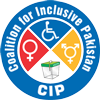-
The News
Whenever people come across a disabled person, they start invading their personal spaces by discussing disability condition. Whether educated or illiterate, they find the disabled to be the objects of their curiosity and start satisfying their sense of curiosity with bombardment of question. During such an interaction, they not only display lack of respect for the privacy of an individual, they also demonstrate paper thin grasp of disability condition.
-
The News
Changing the disability narrative
Our cognitive ability distinguishes us from animals. We can think about things which we have not seen, touched and smelt. John Keats found ‘heard melodies to be sweet but those unheard to be sweeter still’. The other thing which distinguishes humans from animals is our ability to narrate others things we imagine through language. In other words, cognitive ability not only enables humans to imagine things but, in words of Yuval Noah Harari, "Over the years, people have woven an incredibly complex network of stories. The things that people create through the network of stories, he further states, is known in academic circles as ‘fictions’, ‘social constructs’, or ‘imagined realities’.
+92-51-8466232, 051-8466120
Media Coverage
You are here:
- Home
- Media Coverage

